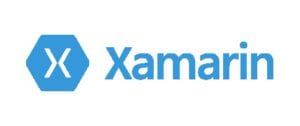Best cross-platform frameworks
Cross-platform mobile app development has revolutionized the mobile app industry. Thanks to this technology, developers can create native-like apps for both Android and iOS devices at the same time. This translates into lower costs, shorter time to market and, therefore, maximized profits. This is why cross-platform mobile app frameworks have become exceedingly popular over the last few years and, luckily, there are plenty of options to choose from. In this article, we’ll go over the six cross-platform frameworks that are highest on our list to help you choose the best cross-platform framework fit for your project.
1) React Native cross-platform frameworks

React Native is an open-source JavaScript cross-platform mobile app development framework that uses ReactJS to create user interfaces for iOS and Android devices. It was developed by Facebook and released in 2013. Facebook not only used it to develop its flagship app, but also others such as Instagram.
With React Native, your JavaScript codebase is compiled to a mobile app indistinguishable from a native iOS app built using Objective-C or a native Android app built using Java. The cross platform framework also lets you write modules in other languages such as Swift, Python and C++.
If that wasn’t enough, React Native helps you build your app faster with hot reloading. This feature means you reload your app instantly instead of recompiling after making changes and it even lets you run new code while retaining your application state.
2) Flutter

As stated on its website, Flutter is “Google’s portable UI toolkit for building beautiful, natively-compiled applications for mobile, web, and desktop from a single codebase”. Flutter helps you swiftly craft high-quality interfaces for both iOS and Android.
Flutter is not just a framework but a complete SDK, which means it grants users everything they need to create cross-platform apps, such as ready-made widgets, a rendering engine, and testing and integration APIs. The framework works with existing code, is used by developers and organizations around the globe, and is free and open-source.
Flutter also includes widget customization and extensions, its own mobile app development language called Dart, an automated testing tool set, and plenty of debugging tools. Some of the cross platform mobile app development companies currently using Flutter include Groupon, eBay, Alibaba Group and Capital One.
3) Xamarin
Xamarin is owned by Microsoft, is also open-source, and works on the “write once, run anywhere” (WORA) model. It uses C# as a single language (which means you don’t have to learn Swift or Java) and harnesses the power of the .NET platform to build native and performant apps for Android, iOS and Windows.
Xamarin can be tested in multiple devices by using cloud services and also includes native API access and native UI support. This framework lets you include Objective-C, Java and C++ libraries, in addition to its considerable collection of class libraries.
Some of the mobile apps created with Xamarin include Azure App, Alaska Airlines and BBVA.
4) Ionic
Ionic offers web and native app components to help developers build highly interactive native and progressive web apps. Launched in 2013, the Ionic framework is free, open-source and licensed under MIT.
Built on Angular, Ionic uses a single codebase to develop progressive web apps and native mobile apps and includes a set of UI elements to make the mobile app development process easier. Moreover, this framework includes more than 120 native device plugins (such as Bluetooth, fingerprint authorization and geolocation).
Pacifica and Market Watch are just a couple of the apps that have been built using Ionic.
5) Apache Cordova

This open-source cross-platform framework was originally launched in 2011 by Nitobi. When Adobe acquired it, they changed its name to Adobe PhoneGap and finally to Apache Cordova (the name Adobe PhoneGap is still used for one of the framework’s many tools).
The cross-platform framework helps you build your mobile app without any hardware restrictions and also supports inbuilt hardware features like GPS, camera or storage.
You can use Apache Cordova to develop apps in JavaScript, HTML5 and CSS. The framework also includes an extensive plugin library and a wide variety of third-party tools, such as PayPal mobile and App Builder.
6) Solar2D![]()
Solar2D was launched under the name of Corona SDK in 2009 and is more focused on the gaming industry. You can use it to create 2D gaming apps that can run on various devices (mobile, desktop or even TV) using a single code base.
Corona uses Lua as a scripting language, whose light scripting translates into apps optimized for performance. The framework also includes live testing, the built-in Corona Simulator, and an array of plugins that cover features like in-app ads and analytics.
The free framework has been used to develop games such as Designer City and Beasts Battle 2.
Best Cross-platform Frameworks Final thoughts
As you can see, when it comes to developing cross-platform mobile apps, there are plenty of frameworks to choose from. They all have excellent communities and extensive documentation to help make the transition from your current mobile app development strategy that much easier. It is no secret our company has some favorites—such as React Native—, but each of these frameworks includes great tools and features and choosing the right one depends mostly on your project’s requirements. If you are looking to dig deeper, please feel free to drop us a line,








